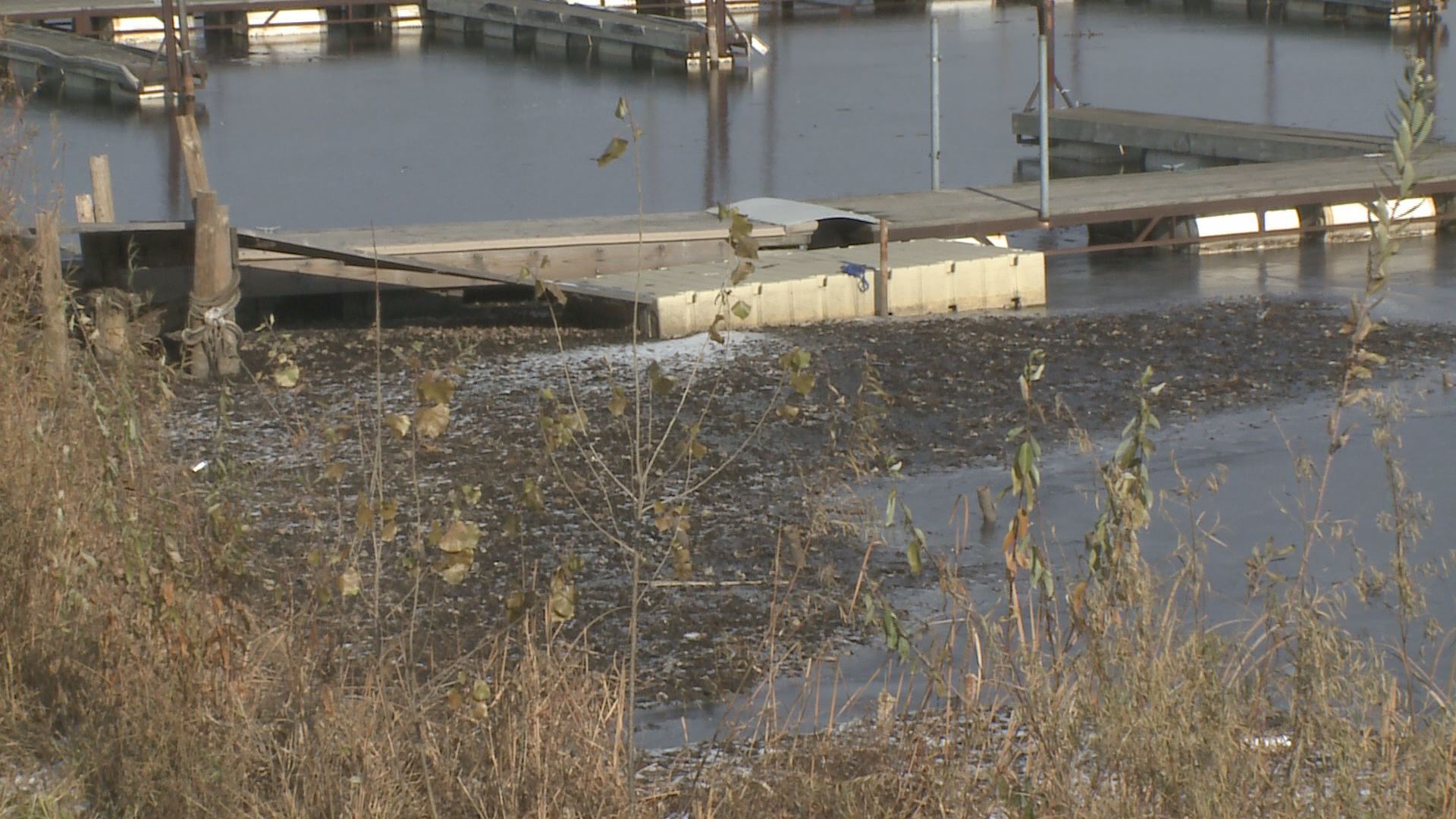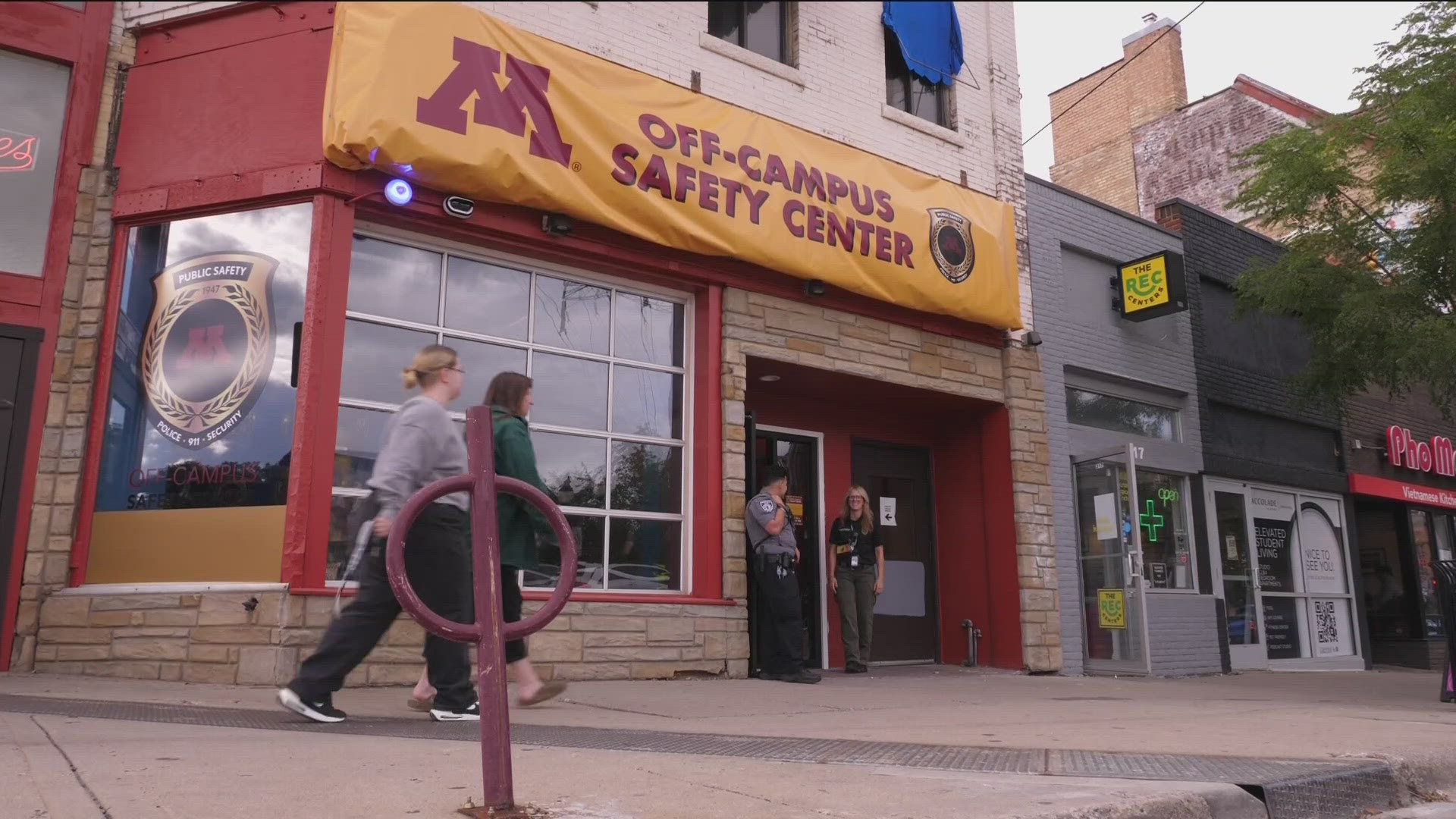WHITE BEAR LAKE, Minn. - A two-year legal battle over the status of a popular Minnesota lake is over - at least for now.
The White Bear Lake Restoration Association and White Bear Lake Homeowner's Association announced Monday that a lawsuit filed two years ago against the Minnesota Department of Natural Resources (DNR) and DNR Commissioner Thomas Landwehr over the dramatic and historic water level decline in White Bear Lake has been settled.
The settlement stops litigation for up to three years, during which time the DNR will support efforts to move six communities from municipal wells to Mississippi River water, pumped through the St. Paul water plant, a plan that could cost $150 million. The communities include Shoreview, Vadnais Heights, White Bear Lake, Mahtomedi, White Bear Lake, and North St. Paul.
The litigation will be dismissed only if and when the surface water system is up and operational. At this time the settlement is subject to approval by Judge Margaret Marrinan to stay the case.
Among the provisions in the settlement certain to raise public debate are those aimed at cutting water usage by 17 percent in 13 communities around the lake, including Centerville, Circle Pines, Columbus, Forest Lake, Hugo, Lexington, Lino Lakes, Mahtomedi, North St. Paul, Shoreview, Vadnais Heights, White Bear Lake, and White Bear Township.
Greg McNeely of the White Bear Lake Restoration Association says residents could reach that water-saving goal through the use of low flow toilets and grey water systems. "Anything we can do, it's a whole awareness, a push of how we do things," said McNeely, who owns a home on the lake.
The DNR also will set a protective elevation for White Bear Lake and consider the "big picture" impact of its permitting decisions on the lake and its residents.
The community groups blame declining lake levels on water use by homes and businesses. The DNR still maintains several years of below average rainfall are mostly to blame, yet settled the case anyway. Assistant DNR Commissioner Barb Naramore said avoiding additional costs associated with the lawsuit provided part, but not all, of the motivation for a settlement. "We don't agree necessarily what's happening, but let's see if we can find a solution we all agree is a productive way to go and that's what we were able to achieve."
The community groups had sought DNR support for a diversion of water from the Mississippi River to replenish White Bear Lake. The DNR held firm on so called "augmentation" which is not included in the settlement.
"This settlement is the first step in restoring White Bear Lake's invaluable ecosystem and its natural, recreational, scenic and aesthetic value," said Michael V. Ciresi, partner of Robins, Kaplan, Miller & Ciresi L.L.P., representing the White Bear Lake Restoration Association. "By utilizing a sustainable water source and protecting the lake's water level, people and businesses in the region of White Bear Lake will have a reliable source of water, while protecting one of our most precious natural resources."
Those behind the lawsuit say that over the past decade, water levels on White Bear Lake -- one of the largest, deepest and cleanest lakes in the Twin Cities metropolitan area – have dropped dramatically. Receding waters have exposed lakebed extending hundreds of feet from what was once shoreline. Record-low water levels have also created ripe conditions for the invasion and increased growth of noxious plant and animal species. Businesses that rely on recreation have suffered along with homeowners' property values.
In January 2013, White Bear Lake's level plummeted to an all-time low of 918.84 feet.
The state legislature could still undo the settlement, by balking at either the cost or the conservation measures. Spokespeople for the community groups said they'll resume their efforts in court if the settlement unravels.
"This is really just the beginning of the effort to protect White Bear Lake and the aquifer," said Katie Crosby Lehmann," an attorney working with the plaintiffs.


